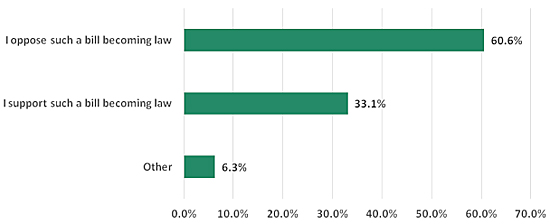Americans wouldn’t cut funding to universities critical of Israel
The House Judiciary Committee held a hearing on November 7 to discuss the “Anti-Semitism Awareness Act.” Proponents of ASAA claim it is a law that would protect Jewish students from anti-Semitic harassment, which they claim is a major problem on campus. Opponents argue the bill would undermine free speech rights, and is a thinly-disguised gag order designed to quash criticism of Israel in academia. The penalties that would be levied on institutes of higher learning failing to crack down would include a cutoff of federal funding to those found in violation of newly expanded Title VI of the Civil Rights Act of 1964 anti-discrimination mandates. Lawsuits accusing colleges and universities of discrimination, such as one recently dismissed against San Francisco State University, would likely succeed under such an expanded definition of anti-Semitism.
For Israel lobby activists giving testimony – including AIPAC, the American Jewish Committee, the Simon Wiesenthal Center, and Anti-Defamation League – the objective of the hearing was to get the bill out of committee and onto the floor for a vote. There, members of Congress beholden to Israel lobby campaign contributors and pressure campaigns orchestrated from their districts would likely vote to pass it, as the Senate did on December 1, 2016. Rabbi Abraham Cooper of the Simon Wiesenthal Center was the bill’s bluntest “lobby-power” advocate. “You have the wall-to-wall leadership of the American Jewish community here…we need to move the ball forward…we hope you’ll send this to the floor of the house for further deliberation.”
No Palestine solidarity group leaders – those most often accused of organizing campus actions that cross the line into anti-Semitism – were allowed to testify before the Judiciary Committee. But not all expert testimony favored applying a definition of anti-Semitism proposed by the American Jewish Committee and adopted by the U.S. State Department – to American campuses.
Professor Barry Trachtenberg, Jewish History Chair at Wake Forest University, cast a harsh light on the drivers behind the legislation. “It is increasingly common to hear reports that a new anti-Semitism threatens to endanger students on a scale not seen since the Second World War and the Holocaust…however, they are motivated less by an actual threat faced by American or world Jewry, than they are part of a persistent campaign to thwart debates, scholarly research, and political action that is critical of the state of Israel.” Suzanne Nossel, executive director of PEN American Center, a free speech and human rights organization, also offered a robust testimony criticizing the ASAA. Earlier, the ACLU expressed its strong opposition to the bill, and the accelerated, “no-debate-allowed” manner the Senate originally passed it in 2016. Appraised of these concerns, recently polled Americans also strongly oppose the bill.
Question: Civil liberties groups oppose an Israel lobby bill barring federal funds to universities that permit protest focused solely on Israel, by defining it as anti-Semitism.
The IRmep poll was fielded by Google surveys to 1,500 adult Internet users from November 17-23 and has an RMSE score of 7.1%. Demographic filtering is available online from Google.
The Anti-Semitism Awareness Act bill joins two other measures designed to impose prior restraint on speech and actions critical of Israel. WPN-136, is a Department of Energy legislative rule, crafted in 2012 under Department of State guidelines, that prohibits any federal employee or contractor from openly discussing Israel’s nuclear weapons program as fact. This allows US presidents to ignore Nuclear Non-Proliferation Treaty and Arms Export Control Act requirements over interactions with clandestine nuclear powers. WPN-136 is currently facing a legal challenge in federal appeals court. (PDF)
The third is the Israel Anti-Boycott Act, a proposed federal law that would fine and imprison Americans engaged in boycotts of Israel. Several states have already passed versions of the law, and now require contractors and aid recipients to sign waivers (PDF) before obtaining employment or disaster relief. According to an earlier poll, Americans even more strongly opposed the Israel Anti-Boycott Act.
Grant F. Smith is the director of theInstitute for Research: Middle Eastern Policy in Washington and the author of the 2016 book,Big Israel: How Israel’s Lobby moves America.

